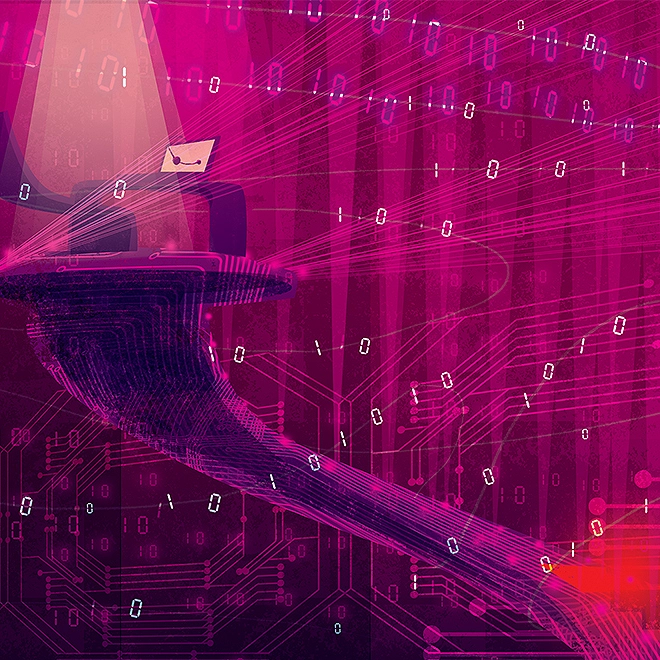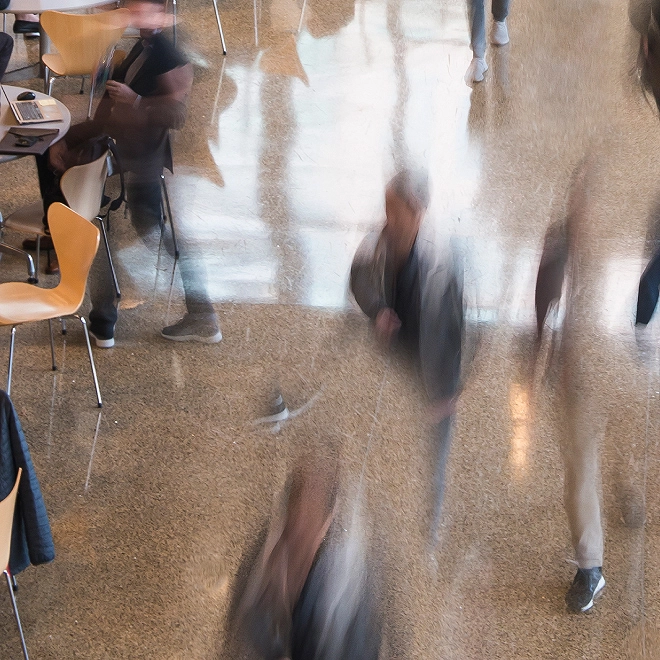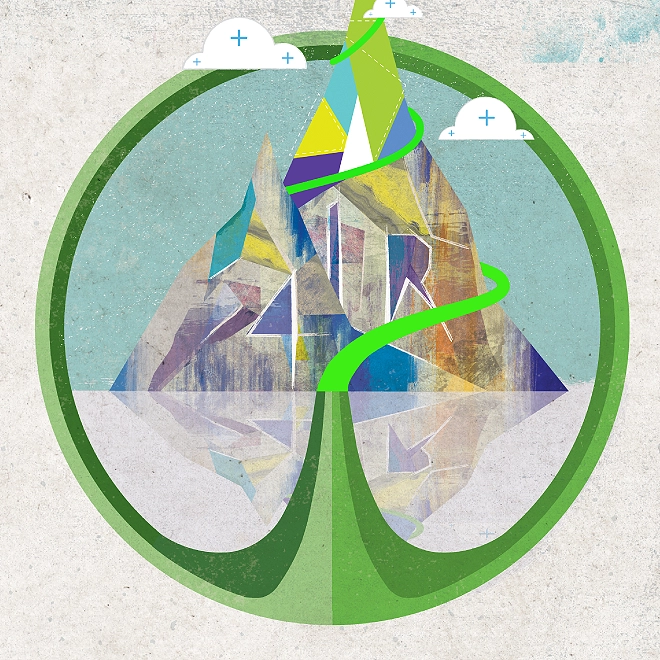Silencing the noise
Deloitte Review, issue 24

Thriving in business has never been simple, and it’s today arguably more difficult than ever. The sheer scale of changes confronting leaders—from disruptive competitors to coping with emerging technologies, a shifting economic and geopolitical environment, and evolving consumer and employee expectations—is increasingly daunting, as is the volume of information that must be processed on a daily basis. Everything seems to be changing at once, and the decision leaders face is not whether to be involved, but how. And where. And when. And with whom. This issue of Deloitte Review seeks to cut through the noise, providing fresh insight into big challenges and critical issues we’ve been examining through our comprehensive understanding of the Fourth Industrial Revolution, the Future of Mobility, the Future of Work, and human capital.
In How leaders are navigating the Fourth Industrial Revolution, Deloitte Global CEO Punit Renjen provides a preview of our latest survey on Industry 4.0 (the full results will be released at this month’s World Economic Forum in Davos). In short, while the technologies that drive Industry 4.0 have the potential to spur a new global operating system—socially as well as economically—we find many senior executives remain less prepared than they think they are. That said, some companies are successfully embracing Industry 4.0—and we reveal their secrets. The Industry 4.0 paradox provides deep dives on strategy, supply chain, talent, and innovation. Tax governance in the world of Industry 4.0 explains how regulators and business leaders can work together to facilitate faster investment decisions.
One area where disruption seems the norm and the future looms large is mobility—how people and goods get from A to B. Regulating the future of mobility sees Derek M. Pankratz, William D. Eggers, Kellie Nuttall, and Mike Turley examine the central role of government in balancing innovation with the public good when it comes to autonomous vehicles, shared mobility, and beyond. Craig Giffi, Kevin Westcott, Ryan Robinson, and Steve Schmith provide a tangible glimpse into the future in Picturing how advanced technologies are reshaping mobility, using augmented reality to allow you to explore how emerging technologies are changing the way we buy cars, drive (or not), and what it all means. And we venture to a metropolis synonymous with traffic for To live and drive in LA, where the general manager of the Los Angeles Department of Transportation, Seleta Reynolds, reveals how a city built for cars is seeking to become a model of 21st century mobility.
What is work? proposes redefining work itself. The head of Deloitte’s Center for the Edge, John Hagel, and colleague Maggie Wooll argue that the age of artificial intelligence demands rethinking not only what we do but also how we do it, especially given our long-held belief that machines and humans are partners, not rivals. That’s a view echoed by the founding director of the Massachusetts Institute of Technology’s Center for Collective Intelligence, Thomas Malone, who tells Jim Guszcza and Jeff Schwartz how groups—both of humans, and of humans and machines—can combine to create “superminds,” where the collective sum is vastly greater than the parts.
Of course, organizations are critical to determining whether individuals work together effectively. In Are you having fun yet?, Tiffany McDowell, Sheba Ehteshami, and Kyle Sandell examine the benefits—and competitive advantage—of merging work with play. Carolyn O’Boyle and Susan K. Hogan ask, in Engaging workers like consumers, why companies whose relationship with consumers have been transformed by technology aren’t similarly forging better, deeper engagement with their employees. And ten years after the financial crisis, economists Rumki Majumdar and Patricia Buckley explain how global labor markets have shifted, and what that means for organizations struggling to bridge skills gaps in How the financial crisis reshaped the world's workforce.
With additional articles on everything from the digital transformation in banking to how companies can measure the social impact of corporate investment and a new way for marketers to categorize consumers, this issue of Deloitte Review provides a roadmap to help navigate challenges that will occupy many of us in the year ahead. We hope you find it insightful, useful, and provocative—that’s our view of the role of global thought leadership, and we’re proud to be on this journey together.



